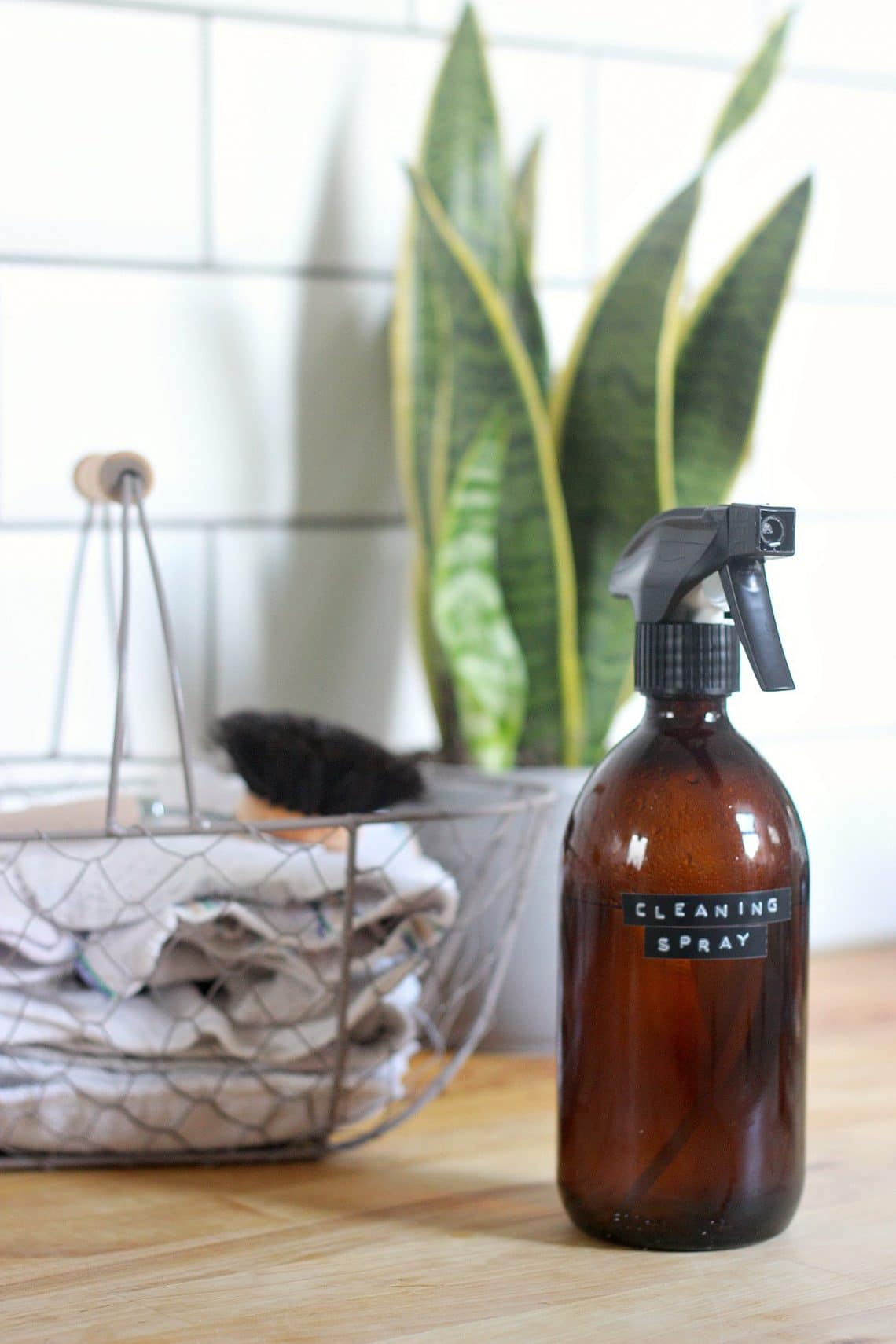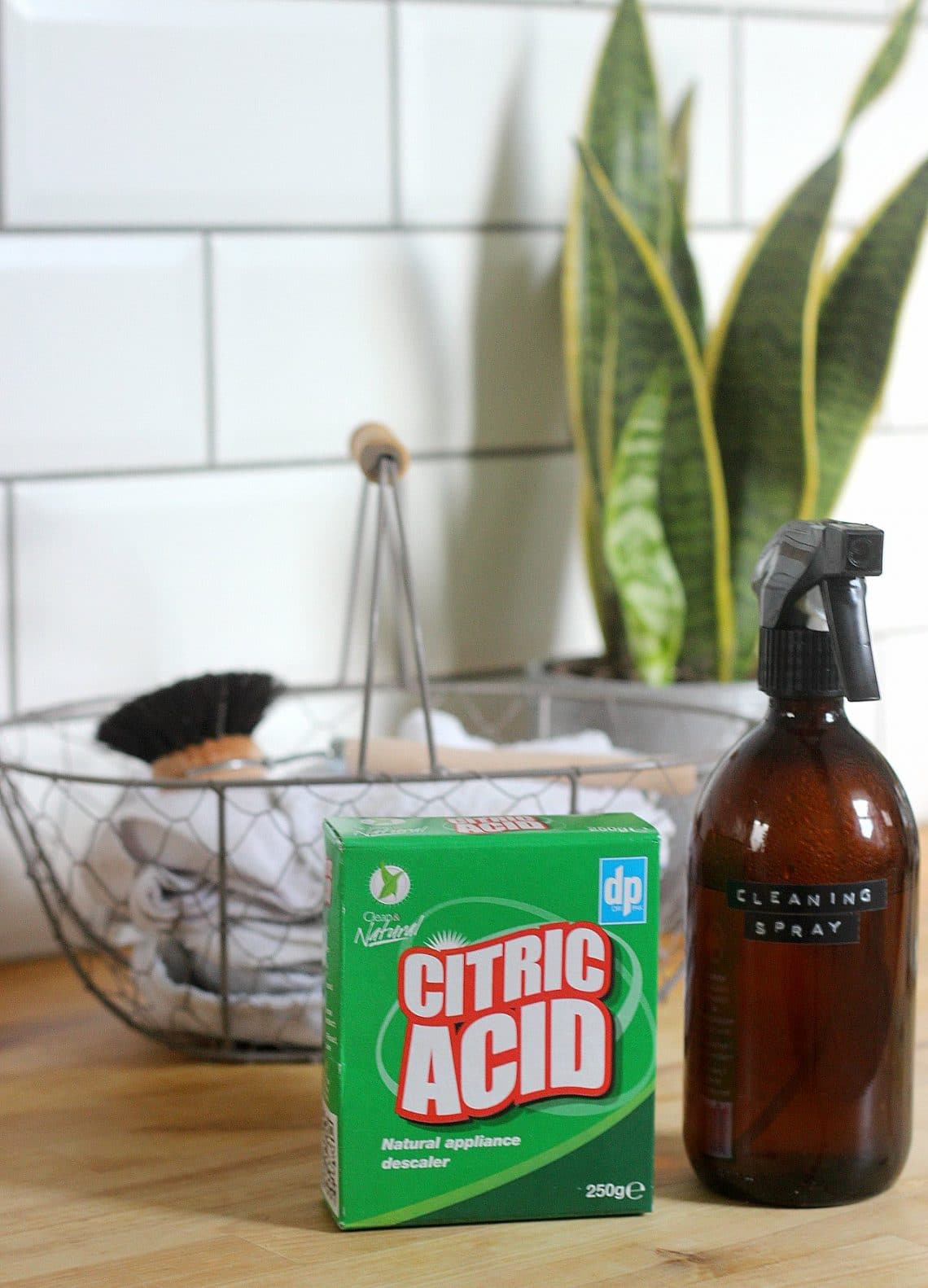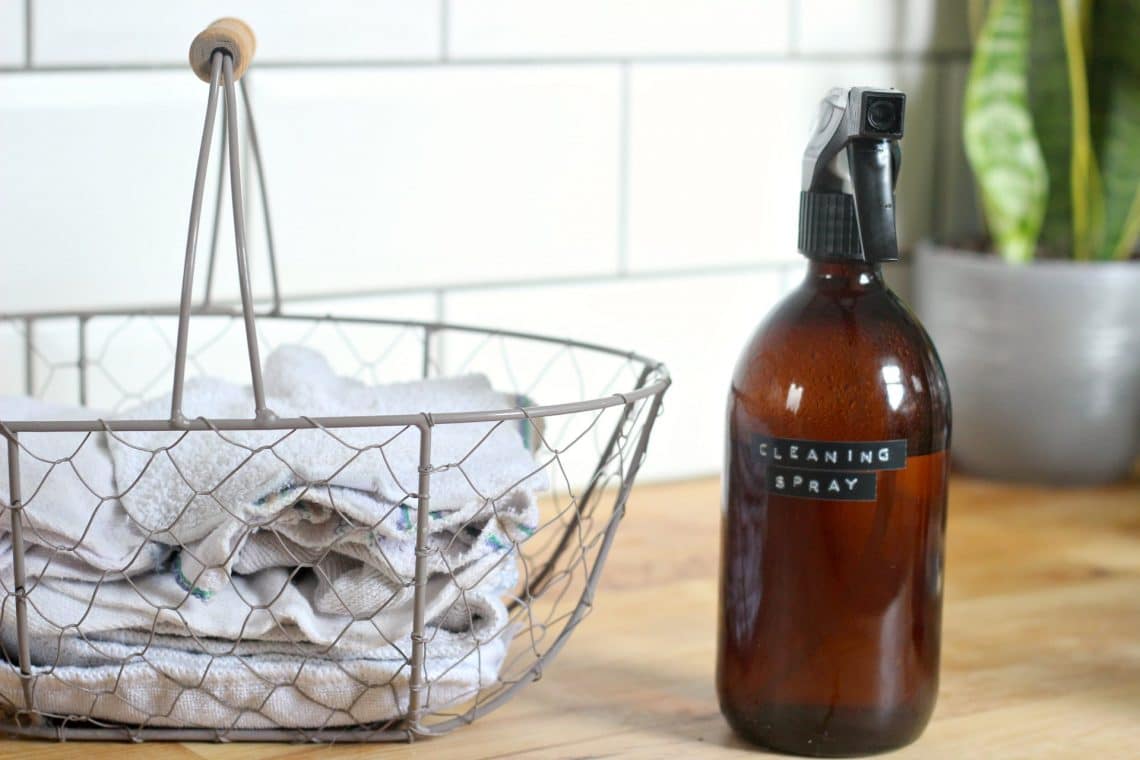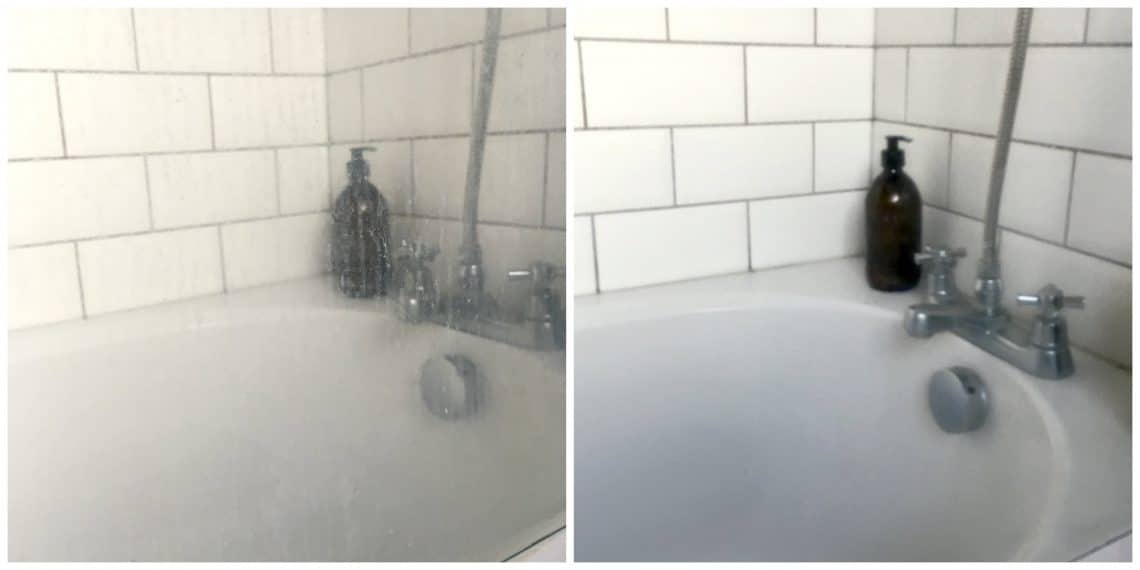Like natural cleaning, but don’t like the smell of vinegar? Worry not – let me show you how to make this plastic-free citric acid cleaning spray.
I make most of my own homemade cleaning products, a lot of which are made without plastic. Then there are the cleaning products that are made with white vinegar. Now, I love white vinegar and buy my vinegar in bulk, but of course, it comes in a five-litre plastic carton.
I use white vinegar a lot in my cleaning and laundry. So for me, it’s a good environmental practice to purchase bulk white vinegar, rather than individual plastic bottles of chemically dubious shop-bought cleaning products.

However, I have had people ask me if there is a plastic-free way to buy white vinegar in large volumes. The simple answer is that, sadly, there is currently no way to buy white vinegar in bulk sizes in anything but plastic. Vinegar corrodes metal. And a five-litre glass bottle would be difficult to transport and prone to breakage.
Even if you buy vinegar from a zero-waste shop, that vinegar probably arrived at the shop in a five-litre plastic carton because there’s no other easy way to transport 5 litres of vinegar in anything but plastic. Plastic it is, sadly.
However, if you want to make your cleaning routine plastic-free, then the good news is that you can use citric acid. This comes in a recyclable cardboard box and can be used to clean almost anything that you would clean with vinegar. Here’s all you need to know:
A Plastic-Free Cleaning Hack


Citric acid acts as a brilliant white vinegar substitute. It also has the added benefit that it doesn’t smell like vinegar. This is a big plus if you or a family member is a little nose-sensitive to white vinegar.
With this little plastic-free box of wonder that is citric acid, you can create vinegar-free cleaning sprays for your home, or use it in place of vinegar in most natural cleaning recipes that call for vinegar.
The only place I wouldn’t use citric acid as a vinegar replacement is in your laundry – for example, in homemade fabric conditioner. This is because citric acid can have a mild bleaching effect on coloured clothing.
What is Citric Acid?
Citric acid is an acid compound found naturally in citrus fruits, particularly lemons and limes, but can also be formulated by fermenting sugars. Visually, it looks a lot like sugar.
Its name sounds a little scary, but it’s actually a key component in home-brewing beer, and in making bath bombs.
Because it’s naturally found in food, used in food and drink production, and also easily biodegrades, it’s 100% safe to use around the home in green cleaning. There are, of course, a few caveats for safe making and usage (see below).
You can find out more about citric acid in my full guide to citric acid for cleaning.
How to Make Citric Acid Cleaning Spray


Here’s everything you need to know to get started:
Ingredients & Equipment Required
Method
- For this homemade citric acid cleaning spray, pour the hot water into your measuring jug.
- Next, add the citric acid to the hot water, stirring well to dissolve it.
- Once dissolved, add 20 drops of essential oil if required. I went for 10 drops of lemon essential oil and 10 drops of rosemary essential oil from Tisserand for a Mediterranean-scented cleaning spray. But do feel free to use what you have to hand. Lavender essential oil and tea tree essential oil are both great anti-bacterial options, for example.
- Decant the mixture into a labelled spray bottle and off you go!
Once made, this spray will last for around 8 weeks. If it starts to look or smell off before the 8-week mark, discard it and make it again.
How To Use
This spray is really easy to use – just shake and spray.
You can clean all surfaces with citric acid except stone, marble, and granite. You’ll want to make a stone-safe cleaning spray for this job. Need a recipe? You can find one on page 34 of my book, Fresh Clean Home.
I just cleaned my glass shower screen with the cleaning spray and a cloth. See for yourself how effective this citric acid cleaning spray can be. I know I love a good before and after:


You can also use citric acid to clean your toilet – click the link to see the full how-to. It’s really effective at removing limescale from your loo (better than bleach!), so I recommend giving it a go.
Why Citric Acid Works As A Cleaning Agent
Citric acid is a great all-round cleaner. It kills bacteria, mould, and mildew, and is brilliant for general disinfecting and cleaning. Where it comes into its own is that it’s really effective at removing soap scum, hard water stains, calcium deposits, lime, and rust.
The reason citric acid is so good at cleaning is thanks to its acidic nature, which easily dissolves alkaline substances like limescale, hard water deposits, and rust. The acid reacts with these minerals, breaking them down into water-soluble compounds that can be rinsed away easily. Because citric acid is weak compared to synthetic acids, it’s safe for most household use while still powerful enough to leave surfaces clean and fresh.
Safety First
Whilst citric acid is a natural ingredient, it is still a chemical. As such, the powder can still cause damage and irritation if handled incorrectly. I prefer to use it in a well-ventilated area. Particularly as breathing in citric acid can cause respiratory symptoms, such as a cough, shortness of breath, and a sore throat.
Citric acid can also irritate your skin and eyes. It’s therefore important to take care when handling the powder not to spill it, or rub your eyes before washing your hands.
And, as with any cleaning product, homemade or otherwise, always keep both the citric acid and any homemade cleaning spray away from curious pets and/or children.
If citric acid isn’t for you, then do try this easy homemade cleaning spray recipe, that is made with liquid castile soap.
Sign Up For The Moral Fibres Substack
Get all the latest articles from Moral Fibres straight to your inbox, once a month, free of charge through Substack. You can also upgrade to be a paid Substack subscriber, where you’ll receive an additional two exclusive articles a month. Sign up now:


